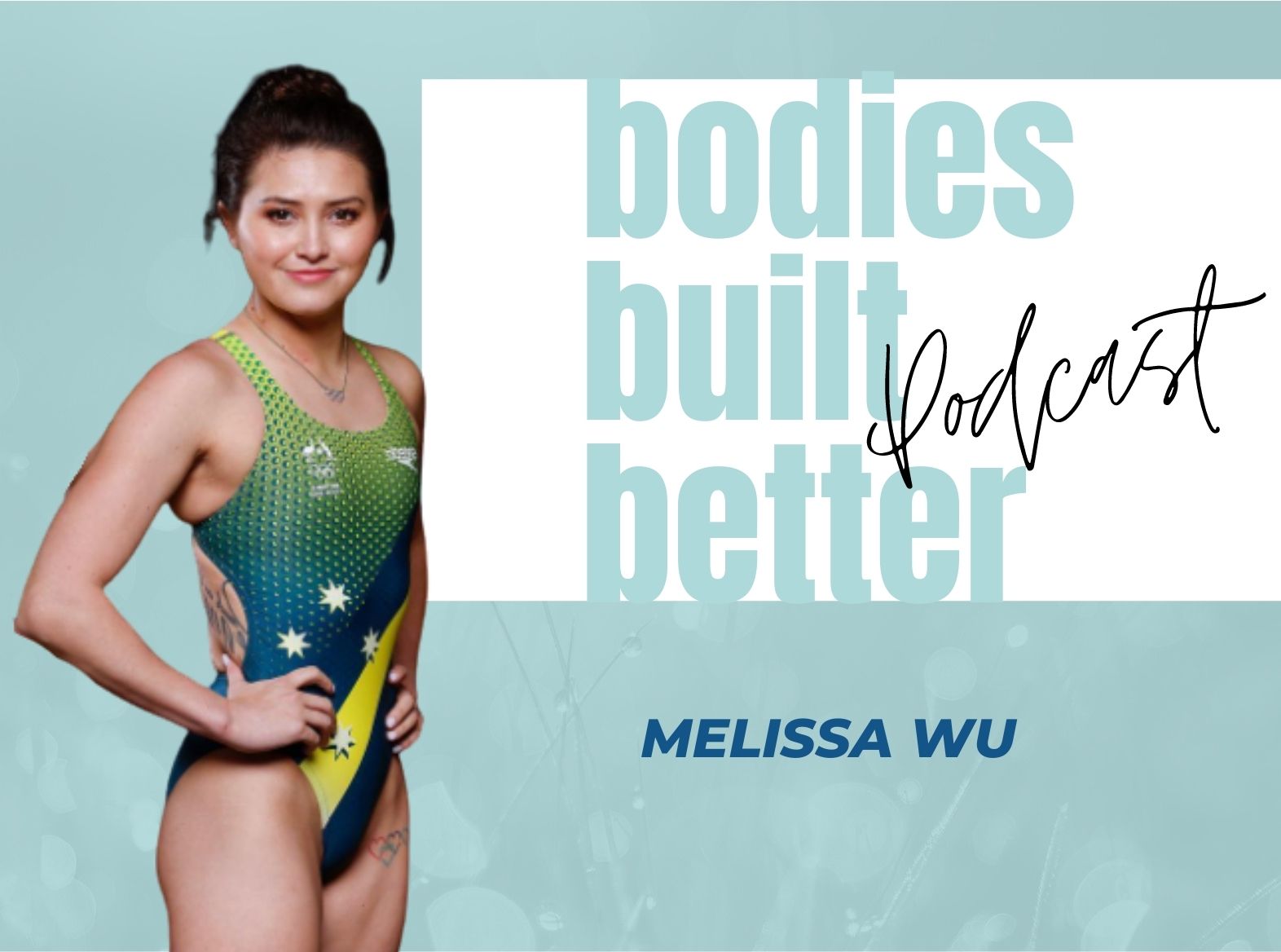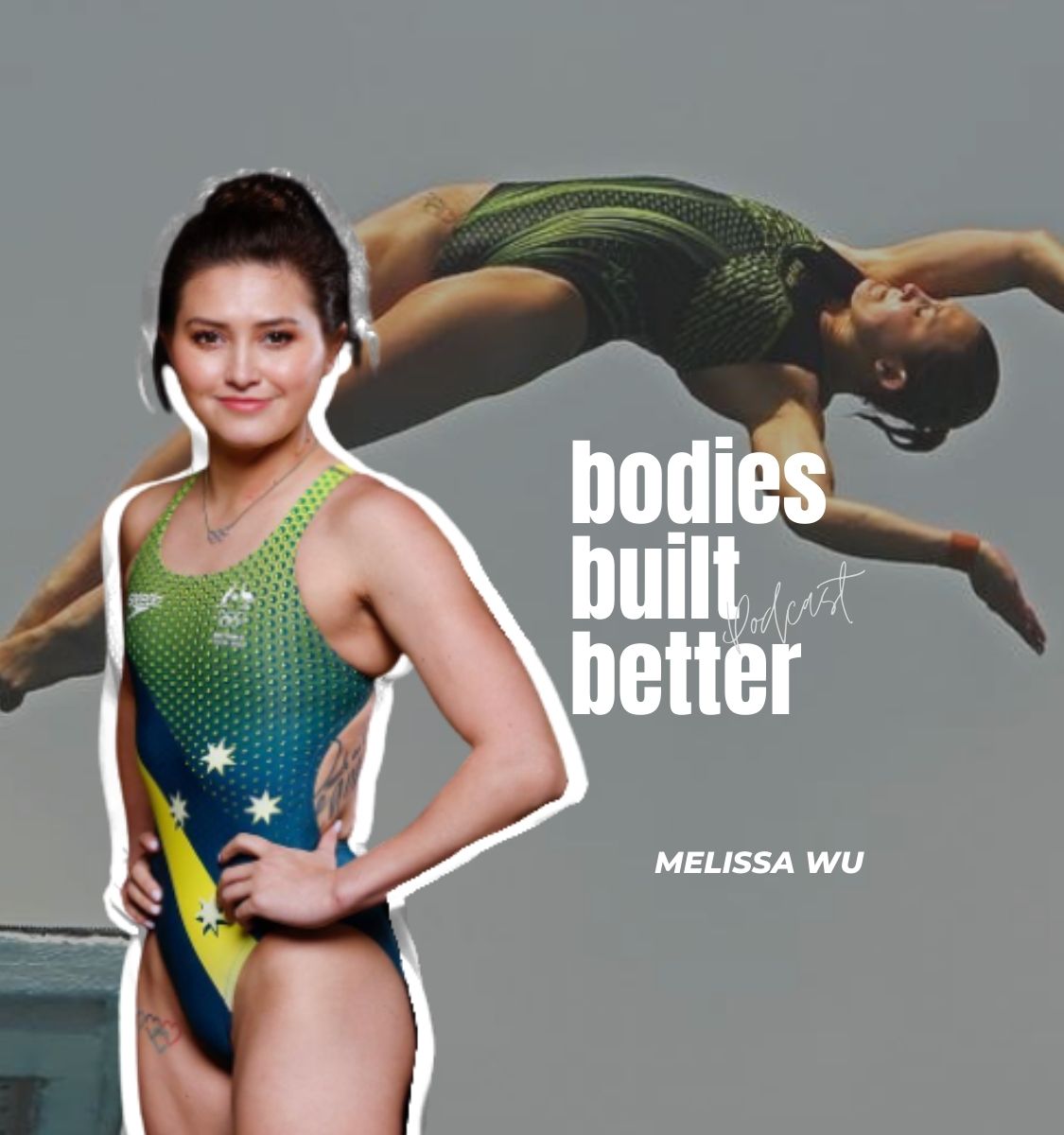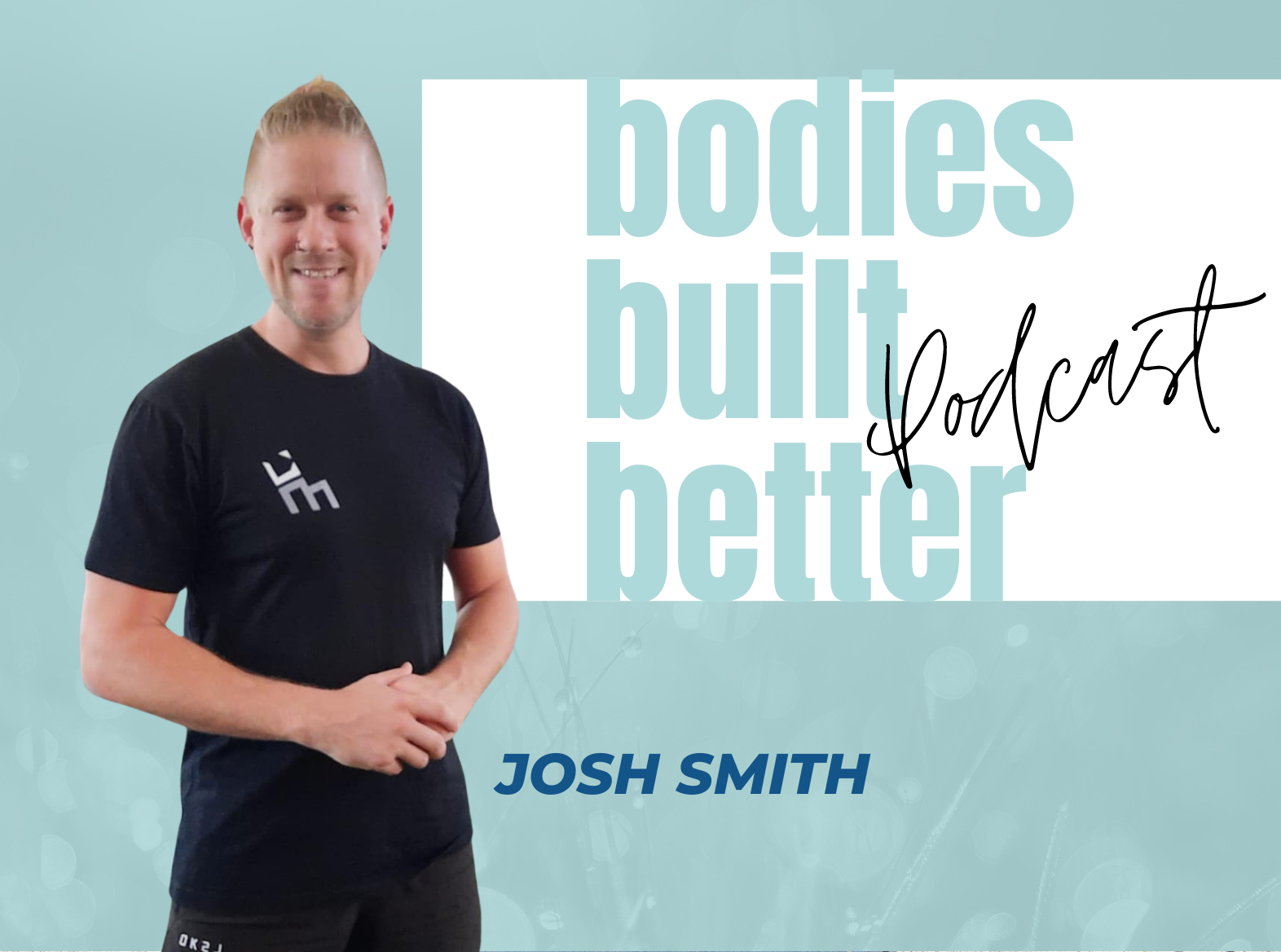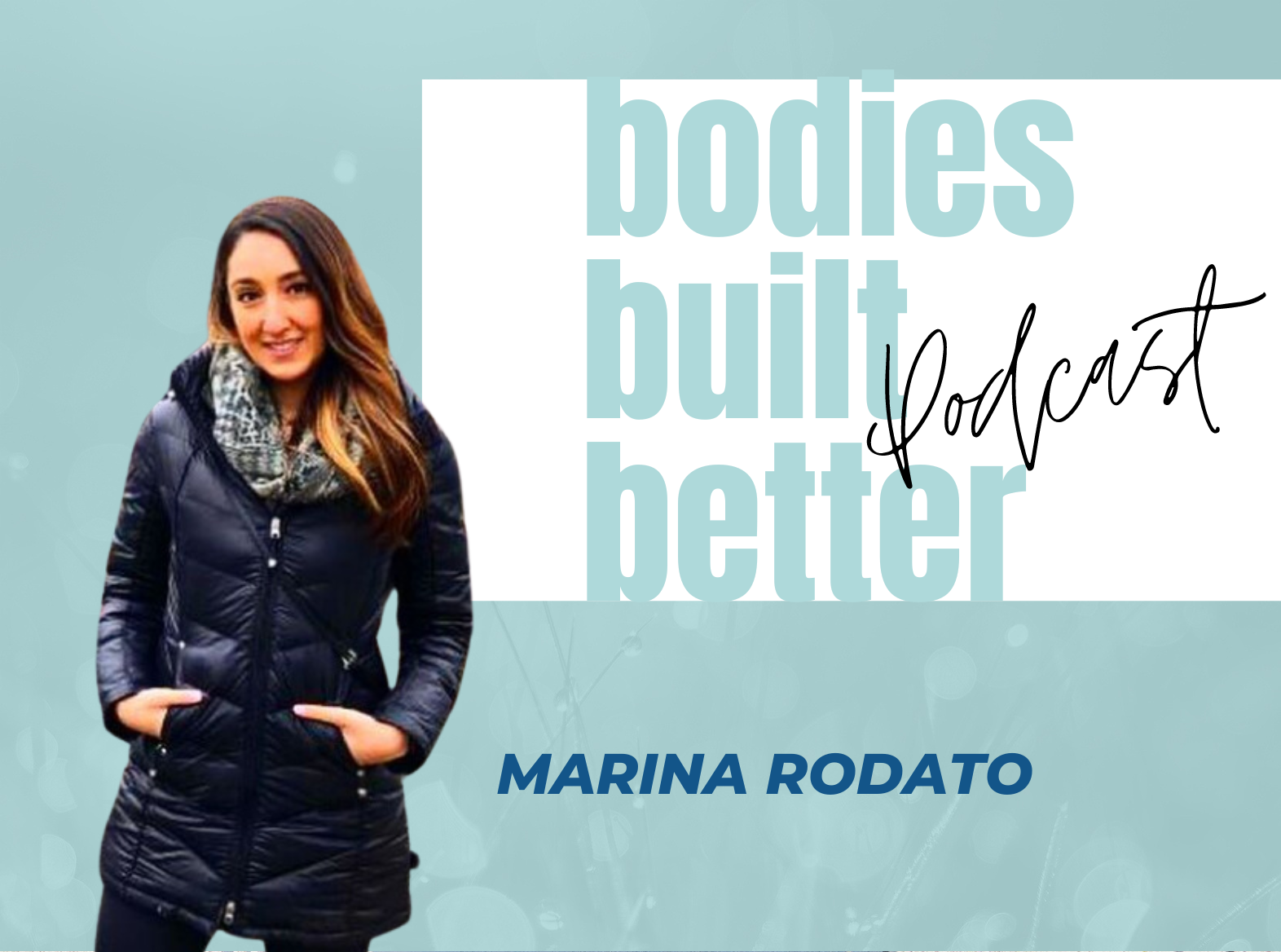Putting Mind and Body Back to The Game After Recent Injuries
Jackie 2:38
Melissa, thank you so much for chatting with me today. Welcome to the Bodies Built Better podcast.
Melissa Wu 2:43
Thanks for having me.
Jackie 2:45
Well, it’s a pleasure to have you. And it’s such an honour because I along with the entire country have followed your career for such a long time now. And you’ve had such an incredible career. And we’re recording now and we’ve seen two episodes of SAS Australia, which is also phenomenal. And I have heart palpitations every time I watch that because the things you guys do are incredibly scary and incredible. So it’s so cool to be able to talk to you. And at the moment, you’re also making headlines all over the world. Back to the injury, you’re going to get to the Commonwealth Games. Firstly, how are you? How are you going?
Melissa 3:31
Yeah, it’s been a, you know, a bit of a challenge the last few months since SAS, to try and get my back good. Again, I actually did a competition in Abu Dhabi at the end of last year. And that was quite tough. I had about six weeks to get ready for that. But I hadn’t done any training since the Olympics. And then coming back, I had a bad back that just hasn’t really gotten any better. So that was a bit challenging to prepare for. And then I took a bit of a break over Christmas. And then basically just trying to hold time, get my back right, and still doing that. So coming back this year, I think just focusing on how I can manage it the best way possible, and how to make sure that I’m still moving forward and not taking any steps back. So it’s a bit of a fine line with how far I can push myself and just have to be patient, I guess and trust the process as well.
Jackie 4:18
Yeah, for sure. How do you feel you got? Do you feel like you’re staying steady at all?
Melissa 4:25
Yeah, I think I’ve made some progress, especially in the last couple of weeks. So coming back in January this year, I just did it really slowly. And I’m trying to do it in a way that is, you know, as safe as possible in terms of not doing it, not re-injuring it or making it worse. So I’ve done that in a really good way. So I’m kind of making steps forward now which is really exciting for me. I feel like I’ve just plateaued a bit but yeah, it’s good to be able to have a little bit more movement now on my back and be at it to start doing some harder dives again.
Jackie 4:55
Brilliant. Well, we wish you all the best for the road to the Commonwealth Games.
Melissa 5:00
Thank you.
How Her Mindset Carried Her To A Bronze Medal In Tokyo
Jackie 5:01
Melissa, you have won 62 medals in your career. 42 of them have been for synchronised events, and 20 of them as an individual. Last year, you won your first medal as an Olympic individual diver at the Tokyo Olympics. Firstly, massive congratulations. That is huge. And secondly, what do you remember of standing on the podium?
Melissa 5:32
Well, thank you. That’s, yeah, it was a pretty amazing experience. And I know, I did not actually know how many times I’ve been to, hearing you say that. But yeah, definitely, I guess you’re always looking forward to the next thing, which is why I don’t really stop and think about it. For me, you know, just by, you know, trying for years and years, to try and get that Olympic medal. You know, it was always just, what can I do better? How can I be better and it was always a dream of mine to be able to win that medal individually and not only just in Synchro. So, standing on that podium, I think, to just back into my career, having a lot of challenges with injury, personal things I had to overcome as well. A lot of hard work in self belief and things like that. And on my mental game, I think that standing on that podium was just that moment where I realised, you know, all the hard work that I’d put in had finally, you know, I finally had something to show for it. And that was a pretty proud moment for me. And I think just knowing that I’d done my coach proud, my family proud and all the people that helped me get there as well. That was such an amazing feeling.
Jackie 6:32
Absolutely. Was there almost a sense of relief?
Melissa 6:36
Yeah, definitely. I think that when you go into comp, you’re always so focused on performance, and you kind of block everything else out and everything. You put everything into that moment, and you put so much on the line that when things do go well, they do get a plan. Yeah, you’re happy? Yes. But I think you’re almost relieved. And for me, that was definitely the case.
Jackie 6:56
Do you remember your thought process going into that last dive?
Melissa 7:02
Actually, my thought process was really similar to the other rounds of dives. I deliberately try not to put too much pressure on myself, I deliberately do all the same routine type things and keep every round the same. I try to bring my emotions, like, right down to they’re in my control. And I don’t change anything. Because the minute you sort of change something in your routine, you think all you know, now a medal is on the line, that’s when things can unravel pretty quickly. And from my past experience with myself, that is always the case. So I just did everything I could. I knew that I was sort of up there. But I just really tried to keep everything normal. Just imagine it’s another day at training during that dive that I’ve done over and over and over again. And I just tried to put everything on all the work I’d put in just, you know, put it in at the right time. And yeah, that worked out really well for me.
Jackie 7:50
When did you realise you came third?
Melissa 7:54
I think basically like from after I finished the last dive then I was just you know, on pool deck watching the scoreboard the whole time and seeing the job was off to me where they were placing and I think then, like wasn’t long after that I found out that I’d that I you know won a bronze. Definitely, the Chinese, I knew they were gonna come first and second because they were unbelievable. But knowing that I’d won that bronze medal was a pretty amazing feeling. And just celebrating with my coach on the pool deck was awesome.
Jackie 8:20
Hear. Absolutely. And when did you get to speak to your family?
Melissa 8:26
Well, basically like that’s like, as soon as I left the pool, but there’s, you know, a lot of stuff that goes on before leaving the pool, you know, voting, the medal ceremony and a bunch of other stuff that drug testing and all that some media and all that kind of thing. So it was a little bit later when I spoke to them. But I knew that they were watching back home, I knew that they were supporting me and I just yeah, it was kind of exciting then to just have that moment where I did get to talk to them. And it wasn’t gonna be like a rush thing. It was just, you know, my undivided attention and just being able to share it with them was pretty special.
Jackie 8:55
Did you get to your phone, and there were just stacks of calls and messages?
Melissa 9:01
Um, I can’t really remember. I think that I think I’m pretty sure my family and you know, the people that my family friends would have all messaged me, but it’s usually more on social media that things sort of blow up anyway. So you get pretty used to it, I think that’s the hard one of the hardest things in comp too is that you get notifications and you’ve got to kind of know like, ignore them. If you’re, if you’re on your phone, listening to music and that kind of thing. You don’t want to see anything that comes up on the screen. So I think I just got used to sort of blocking all that out and just do that later. And even afterwards just kind of enjoyed that moment to celebrate and said I’ll get to all the messages and everything later.
Jackie 9:33
Brilliant. How does this compare to other wins because you’ve won gold and the last gold you won was at the Gold Coast Commonwealth Games 2018. How is this different?
Melissa 9:49
I think that this one is actually pretty similar for me, that gold at the 2018 […] was also really special to me. Again, I think […], the longer I’ve been in this field I’ve had to overcome more. And it is more challenging when you’re older as well. And I think that one to me meant a lot just because of the journey to get there. And diving in that pool, [it] was quite scary, and I had a lot of sort-of not-great experiences, they’re not very good performances in the lead up. So that one was really special. And I think that was a really good stepping stone for my confidence to then go into Tokyo and to be able to get that individual bronze. And for me, the Olympics is the pinnacle, that’s, you know, the ultimate thing. And so for me, definitely the Olympic medal is the most special but for me, personally, it’s on par with the Commonwealth Games, gold as well, very special to me, and I think just at this point of my career, really appreciating what they mean to me.
Athlete Achievements As A Reflection Of The Work
Jackie 10:42
Yeah, beautiful. You are one of the most successful divers in Australian history becoming one of three divers to qualify for four Olympics, which is such a huge achievement. Knowing this, how, how do you feel when you hear about that? I mean, just a second ago, you’re like, 62 medals, I didn’t even know that. There’s so much incredible things that you’ve achieved. Yeah, how does that make you feel?
Melissa 11:13
I think for me, I don’t really focus on the achievements so much. They mean a lot. To me, it’s something they don’t mean a lot. But I think for me, the achievements are more a reflection of the work that I put in and the person I became in order to achieve them. So when I think about the achievements, I don’t think of it in terms of the accolades or, or the physical metals and things like that, I think of it as well, that was a massive step for me to be able to achieve that because I had to do this and that. And so I think that whenever I think about it, it is cool to reflect on it. But think about it, I’m such a different person, the person that was able to go and win those medals was a very different person to the person who choked, you know, at the Olympics before that, and the Olympics before that. And for me, that’s where I feel the most proud and, and happy when I look back is knowing how far I’ve come.
How Starting Out Early In Sport Defined The Mindset
Jackie 11:59
Oh, good on you, Melissa. Let’s start at the beginning, which is now a long time for you because you’ve been in the sport a long time. 10 years old when you got into it. How does a 10 year old decide they want to start diving?
Melissa 12:16
Yeah, it’s not a very common sport in Australia. I was always, my family was always quite sporty when I was younger. And my sister was a really good swimmer. So we spent a lot of time around pools and I did something that I really hated, like hated it. As you’ve probably seen from SAS, I am so bad at it. But then basically watching her race at Sydney Olympic Park was where I first saw diving, and I used to always wander down the other end of the pool. And, you know, hopefully they’ll be there. And then I get to see them train and I just fell in love with it. From the moment that I saw it. I used to love flipping around the house. And I did a little bit of gymnastics when I was younger so I was always more drawn to those acrobatic type sports. And as soon as I saw diving, I just wanted to try it and add something I just knew I would love.
Jackie 13:00
Yeah, so do you remember jumping off the 10 metre?
Melissa 13:05
Yeah, it took me a while when I was not very brave, (when I was) younger. So it took a little while to jump off. But I think, once I got better at diving, and I got a bit more skilled, then I loved it. I love doing platform. And I learned my 10 minute dive list at a pretty young age and got to compete at a young age. And that was pretty amazing.
Jackie 13:25
You did compete at such a young age. How does someone so young deal with that kind of pressure? Did you realise you had that pressure on yourself? Or were just kind of oblivious?
Melissa 13:37
Yeah, definitely. Actually, the pressure came not not even just from being at those competitions that just says was always a certain standard that you had to meet. So when I was about, I think it must have been 11 or 12. I got into an Australian Institute of Sport Junior squad. And that was a big opportunity for me because they only took about three of us and they wanted to start getting kids younger. So I was sort of the first in that first group of kids that came in, in Australia. And we had a lot of successful diving Olympians at that stage. But they’re all a little bit older, like late 20s, early 30s. Even so, yeah, that was from trialling, bringing kids in and when you went in there was just constantly like evaluations and standards you had to meet and there was sort of a good environment in that we’re all very competitive, but then they would just drop people quite frequently. So you always were worried that you had your head on the chopping block and that you weren’t meeting standards. So I think that then going into comps and that kind of thing. I was always just really aware not so much of how I did in the comps in not anything new but just always worrying about maintaining my place in the squad.
Jackie 14:47
There was one story I remember you telling where so you’ve made the move. Did you start your diving in Sydney and then moved to Brisbane or where did that start for you?
Melissa 15:00
Yeah, I did. I started in Sydney and I started in a club here. So that was a bit more just recreational for fun. That’s right. I just started diving fell in love with the sport. And then I moved to Queensland with my family–we’re originally on the Gold Coast–and I was just diving for a little bit in the club there. And then from there, I got, I was seen by the Chinese coaches in Brisbane. And then they invited me to train the programme in Brisbane. So then after that my family moved to Brisbane.
How Pressure To Perform Can Break The Athlete
Jackie 15:29
And how did you go in Brisbane, because I know, you then made the move to Sydney, what happened?
Melissa 15:35
So I was kind of in how many years I was training there for but basically, I chained for a few years, and I had a really good coach and I got really good. And that’s when I started doing my first senior international comps like my first Commonwealth Games in Melbourne. And I made my first Olympic team as well, competing in Beijing in 2008. And then I think just after that, I then had to move. They kept me with that coach that sort of brought me up for a little bit longer than they should have, because we worked really well together. And then after my first Olympics, they wanted me to move up to the head coach. So I did that for I’d barely lasted a year, I just didn’t gel well with him at all. And yeah, we butted heads a lot. And I just ended up really unhappy and he just sort of knew how to push my buttons and, and that kind of thing. And it just wasn’t really a good fit. So I think from there, I wasn’t really in a good place mentally either. So I just decided that I couldn’t do it anymore. I was either gonna quit or that I had to do something different and get out of there. That’s why I decided to move to Sydney.
Jackie 16:37
Incredible. And what a brave decision to do that as well, when you’re in that position.
Melissa 16:44
Yeah, I think so it was hard because at the time, they weren’t that supportive of people moving away, because that was sort of the main programme there. And it seems decentralised, so you can train in different state institutes now but at the time, they really didn’t support people who weren’t diving in Brisbane. So that was a little bit scary as well. But it was definitely the best for me, it was the best thing that I did. And I’ve been diving with the same coach.
Where to Find Melissa:
Instagram: @melissapaigewu
Instagram Weightlifting page: @hrdkawstrength
Instagram Activewear label: @havokathletic
Website: www.havokathletic.com.au


